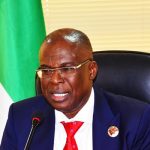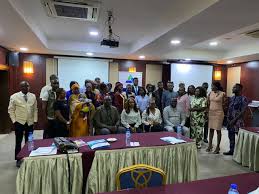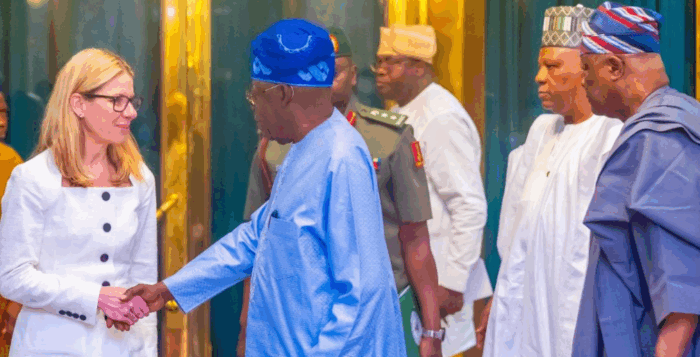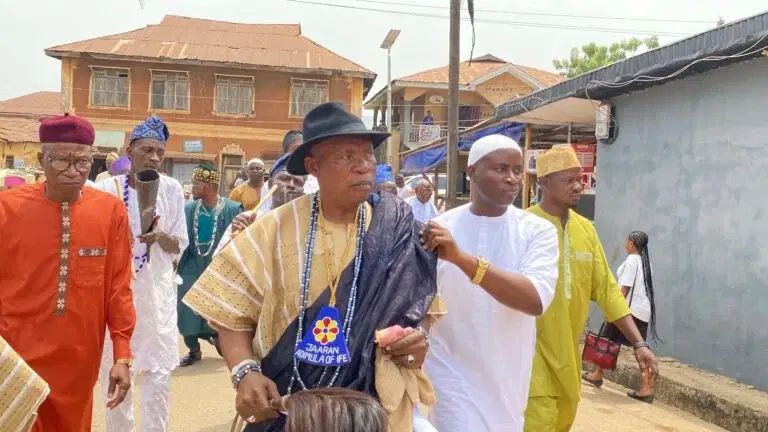IPOB’s Role Post-End SARS: The Ongoing Pursuit and Persecution
Following the tumultuous event of the End SARS movement that rocked Nigeria in October 2020, a new wave of concern has surged regarding the involvement of certain individuals purportedly linked to the Indigenous People of Biafra (IPOB).
Two weeks to the Post-End SARS protests, these individuals allegedly affiliated with IPOB, have found themselves fleeing from authorities, amidst an intensified crackdown. This development underscores the persistent tension between the Nigerian government and the pro-Biafra groups, highlighting the need for a deeper examination of the unfolding scenario.
Initially sparked by the call to end police brutality and reform the Nigerian police force, the End SARS movement evolved into a broader outcry for systemic change and governmental accountability.
While the protests united millions of Nigerians, they also laid bare deep-rooted grievances and schisms within the nation. Among these schisms is the longstanding clamor for an independent Biafran state, fervently championed by groups such as IPOB.
The IPOB group is perceived as a threat to the Nigerian government due to their secession from Nigeria agitation. The IPOB movement and struggle for independence from Nigeria is said to have caused a lot of havocs in it’s bid to achieve its aims. The government termed the group as a terrorist group as a result of the events that occurred in its region.
Worthy to note is the case of one Mr. Solomon Nmesoma Nnadozie who hails from Imo state, the southern part of Nigeria. It is believed that he amongst others led one of the protests and is currently wanted for the lead role he played in the IPOB agitation. As a direct result, some members of his family were hunted down, and some killed in the process as men in military uniform set ablaze his family house which was burnt down by the men perceived to be agents of the federal government.
The government’s response to both the End SARS protests and the IPOB movement has been characterized by a heavy-handed approach, marked by arrests, crackdowns, and the branding of agitators as national security threats. This has engendered an atmosphere of fear and uncertainty, particularly for those associated with pro-Biafra factions.
These individuals who are currently on the run , are purportedly connected to the IPOB, and now find themselves ensnared in the midst of these turmulent times.
With the federal government actively pursuing agitators and IPOB members, the fate of these individuals hangs precariously in the balance. While some laud them as champions of freedom and self-determination, others decry them as agents of destabilization, imperiling the unity and integrity of Nigeria.
This situation brings forth crucial questions regarding the right to dissent and the boundaries of governmental authority in a democratic society. While the Nigerian government bears the responsibility to uphold law and order, it must also uphold the fundamental rights of its citizens, including the right to peaceful protest and freedom of expression. The blanket categorization of IPOB members as terrorists or criminals risks further marginalizing already disenfranchised communities, fostering resentment, and catalyzing radicalization.
Moreover, the crackdown on IPOB and its affiliates threatens to inflame existing tensions, driving the movement further underground and complicating efforts to address the underlying grievances. Rather than resorting to repression, the government should explore avenues for dialogue and reconciliation, addressing the grievances of marginalized groups and striving towards a more inclusive and equitable society.
In essence, the situation surrounding IPOB and its alleged associates underscores the intricate and multifaceted nature of Nigeria’s socio-political landscape.
As the nation grapples with the aftermath of the End SARS protests and the persistent clamor for Biafran independence, it becomes imperative for all stakeholders to engage in constructive dialogue and pursue peaceful resolutions to the underlying issues. Only through dialogue, empathy, and a steadfast commitment to human rights can Nigeria aspire to attain enduring peace and unity.










